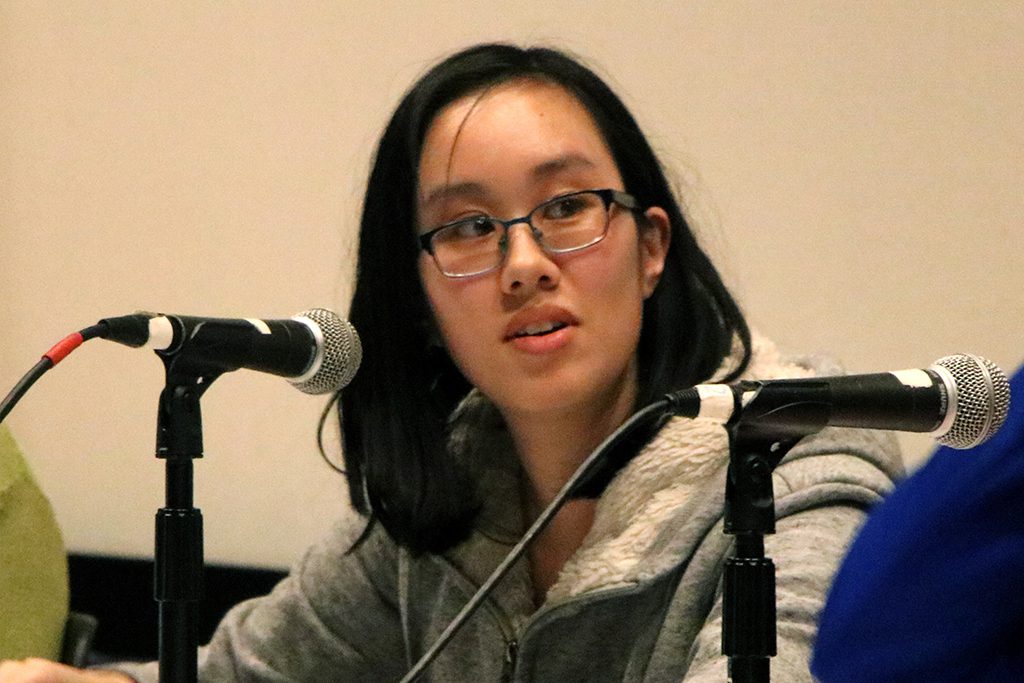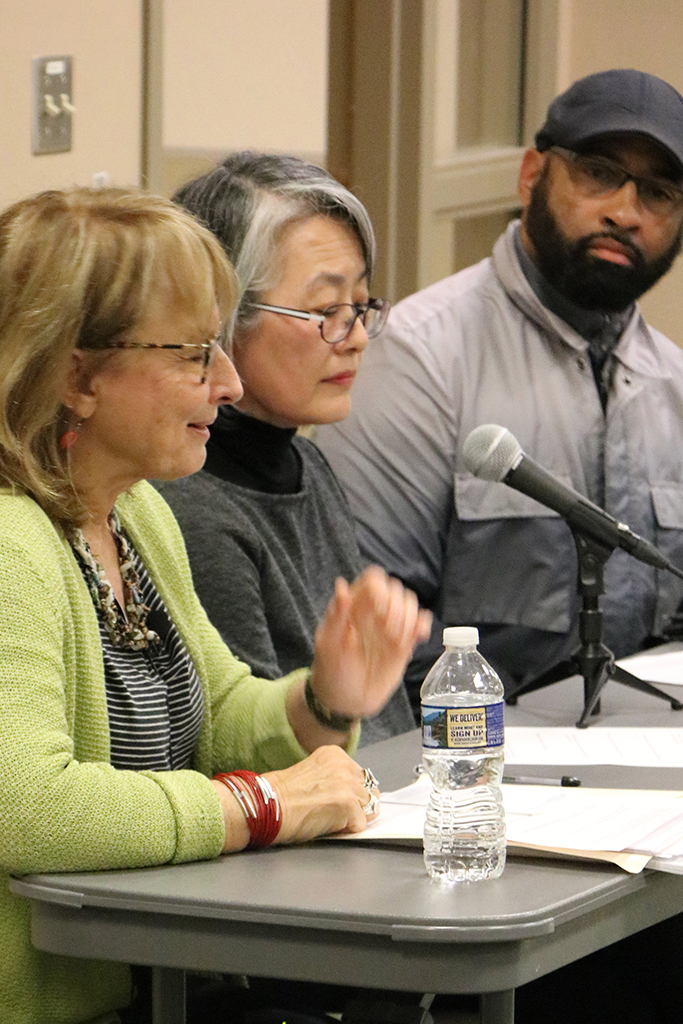Young adults with disabilities, parents say space and support essential to adult transitions

Successfully navigating the challenges and opportunities that arise when young adults with disabilities move from school to the adult world requires both independence and interdependence, said self-advocates and parents at two Center for Disabilities Studies events yesterday.
CDS, which is marking its 25-year anniversary, held a Lunchtime Learning forum featuring parents discussing how their children’s transitions affected their families. It also screened Intelligent Lives, a documentary focusing on three young adults with intellectual disabilities as they progress through school and employment, followed by a panel discussion.
Speaking after Intelligent Lives, CDS Career and Life Studies Certificate (CLSC) graduates Catherine Lin and Nick Godwin said they gained confidence in their ability to operate independently by living in dorms on campus away from their families. They also said they learned to trust their networks of friends, mentors and counselors.

Becoming an effective self-advocate, said Lin, requires “knowing what [you] need and who to ask for help.” She currently works at the Newark Senior Center, a job she said she got by “express[ing] that I wanted to try new things to my boss and job coach.”
Catherine’s mother Clara Lin, a Lunchtime Learning panelist, recalled that Catherine also reached out to her parents and counselors when she was considering quitting CLSC.
She said the CLSC counselors encouraged Catherine to reflect on the skills she had gained as a CLSC student. “I learned so much about her capability,” Clara said. “I should let my daughter be driving and I need to be in the back seat.”
Janice Fialka, who participated in both panels and whose son Micah Fialka-Feldman was featured in the movie, described this parenting strategy as “advocating for advocating”: guiding young adults by providing advice and support while trusting them to make their own life decisions.
Lunchtime Learning panelist Michael Harris, a member of the Delaware Developmental Disabilities Council, said he came to the same conclusion, though it wasn’t easy. “The hardest thing to do [as a parent] is remove yourself from your fears and let your child learn,” he said, but “parents need the maturity to understand that it’s not about you – it’s about your child.”
This entry was posted in News, News from CDS.
